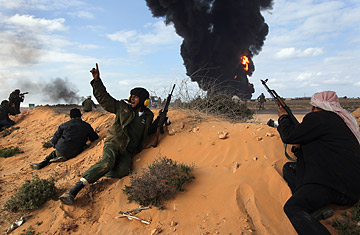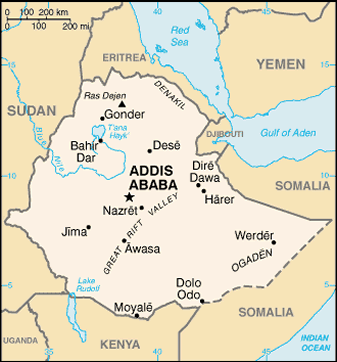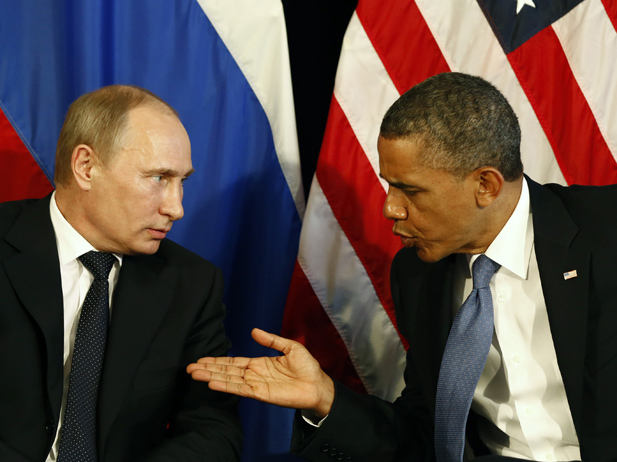On May 28, 2015 Abu Mohammed al-Golani, the leader of Jabhat al-Nusra, gave an exclusive interview to Al-Jazeera, discussing his aims and strategies as the head of al-Qaeda’s Syrian affiliate. During the interview, al-Golani stated that al-Nusra’s sole mission was to fight the Assad regime and its agents, based on orders from the al-Qaeda core “not to use Syria as a launching pad to attack the US or Europe.” In response to US attacks, al-Golani stated “everyone has the right to defend themselves”, but there was no mention of the US or Europe as enemies.
Al-Golani’s toned-down radicalism showcases the new image al-Nusra has recently been implementing. A year ago, al-Nusra was facing an identity crisis, unsure of its positioning between al-Qaeda and the creation of the Islamic State in Iraq and al-Sham (ISIS). The result greatly destabilized al-Nusra, with senior figures leaving the organization to join ISIS, and the two engaged in a war of messages over the legitimacy of the other. At the time, Human Rights Watch accused al-Nusra of “systematic and widespread violations including targeting civilians, kidnappings, and executions.” Since then, al-Nusra has taken steps to shed its extremism.
 In February 2015, al-Qaeda leader Ayman al-Zawahiri outlined a new strategy commanding al-Nusra to better integrate the movement with the Syrian revolution and its people. These direction are readily visible in al-Golani’s interview, where he vows not to persecute Christians and Druze in the region. As long as they “drop weapons, disavow Assad, do not send their men to fight for him and return to Islam”, ai-Nusra will treat them as “brothers”. By posing al-Nusra as the “moderates” in the Syrian Civil War, the possibility remains that their posturing is a tactic to gain sympathy by declaring themselves as the good guys of the conflict. For Zawahiri, the goal is to ensure al-Qaeda becomes a working member of any new Syrian government.
In February 2015, al-Qaeda leader Ayman al-Zawahiri outlined a new strategy commanding al-Nusra to better integrate the movement with the Syrian revolution and its people. These direction are readily visible in al-Golani’s interview, where he vows not to persecute Christians and Druze in the region. As long as they “drop weapons, disavow Assad, do not send their men to fight for him and return to Islam”, ai-Nusra will treat them as “brothers”. By posing al-Nusra as the “moderates” in the Syrian Civil War, the possibility remains that their posturing is a tactic to gain sympathy by declaring themselves as the good guys of the conflict. For Zawahiri, the goal is to ensure al-Qaeda becomes a working member of any new Syrian government.
Yemen has brought similar success for al-Qaeda, with Al-Qaeda of the Arabian Peninsula (AQAP) following a similar approach as al-Nusra. Saudi Arabia and AQAP both follow the Sunni branch of Islam, and while the Saudis try to suppress the Shi’ite Houthi rebels, AQAP has been able to remain neutral and use the conflict to gain and consolidate power. Unlike previous attempts at governing, in these new AQAP holdings the organization has allowed Western fashion and music, in hopes of building relationships with the cities as an alternative to the Houthis. These similar tactics – coalition-building, moderation, and an emphasis on governance, mark this new identity for al-Qaeda
Within the al-Qaeda core, Zawahiri has notably taken a leave of absence from social media and announcements, not giving statements or videos since September 2014. Al Qaeda has still been involved with assassinations and attacks, the Charlie Hebdo shooting being the most notable example, but the al-Qaeda core has not participated in rhetoric the same way AQAP has. This silence has not meant the weakening of al-Qaeda’s ties to its partner organizations: in al-Golani’s interview, he reaffirmed the authority of Zawahiri, and the approach to not antagonize the West came from the core group.
When put together, al-Qaeda displays a new, more pragmatic image than before. This is partially a result of its changing organizational structure. Back in 2001, al-Qaeda consisted of a core group of only 122 individuals, and a few dozen foot soldiers. Only after 9/11 did the group expand and create client organizations: first AQAP in 2004, followed by al-Qaeda of the Islamic Magreb (AQIM) in 2006. As these negotiations for strategic leadership continued, however, the organization was plagued with dysfunction and the death of its senior figures, notably Osama bin Laden himself in May 2011. The death of al-Qaeda in Iraq’s (AQI) leader Abu Musab al-Zarqawi in 2006 weakened the core group’s influence, allowing more radical members to take over AQI and eventually sever their relationship, first becoming ISI, and then ISIS.
Three years ago the U.S. Department of Defence believed that through sustained pressure, core al-Qaeda would be “of largely symbolic importance to the global jihadist movement” in relation to its regional affiliates. Rather than this decline, Zawahiri and the group, despite remaining in hiding around the Afghanistan-Pakistan border, have been able to assert their aims and advance their message of pragmatism over AQAP and al-Nusra. The new organizational structure is less hierarchal than a decade ago, with power lying in separate networks and personal ties. The nature of these relationships, whether it is consensual, or autocratic is not entirely clear, but al-Qaeda has defied odds and maintained itself as an ideological leader in the jihad movement.
Al-Qaeda faces significant problems in the future. Utmost is the threat of the Islamic State, as both claim to be the leaders of the global Islamist movement. Boko Haram’s allegiance with ISIS over al-Qaeda emphasizes the former’s appeal: although Boko Haram already had financial ties with AQIM, ISIS brand name was more valuable for gaining new recruits. Zawahiri’s desire for pragmatism within AQAP and al-Nusra was to portray the al-Qaeda partners as the moderate alternative to ISIS. Al-Qaeda ideologue Abdullah bin Mohammed, for example, calls for the organization to tone down rhetoric to infiltrate legitimate regimes, allowing them to build influence and power from the inside. Many, including the top ranks of al-Nusra, have welcomed the idea.
The second obstacle for al-Qaeda is ensuring the continued allegiance of its branches. Not all welcome the new policies that eschew takfir ideas. The conservative members of Nusra Front are reportedly unhappy with al-Qaeda’s stranglehold on strategic thought. Within this sect of al-Nusra, al-Qaeda remains important for reasons of branding alone: foreign fighters eagerly sign up to join a global movement, but without the al-Qaeda name al-Nusra becomes just another nationalist group. For now their allegiance seems stable enough, but as al-Nusra and AQAP become stronger or even a working part of a government, to obey the calls of a distant group in Afghanistan and Pakistan may become less palatable.





